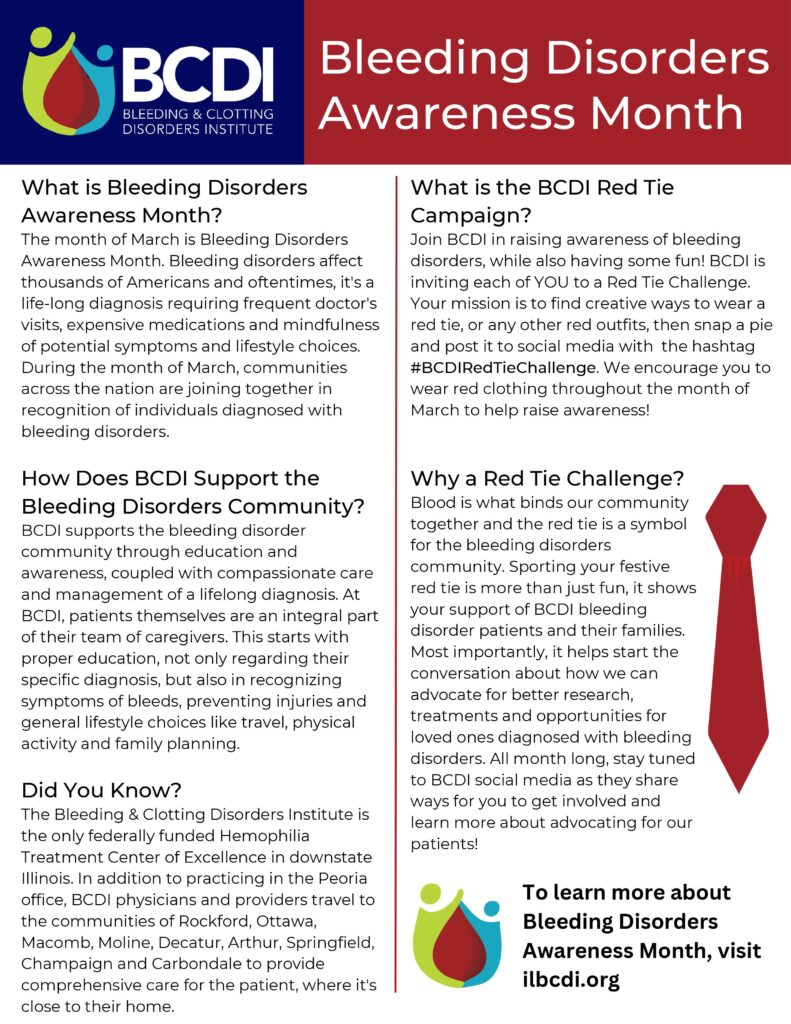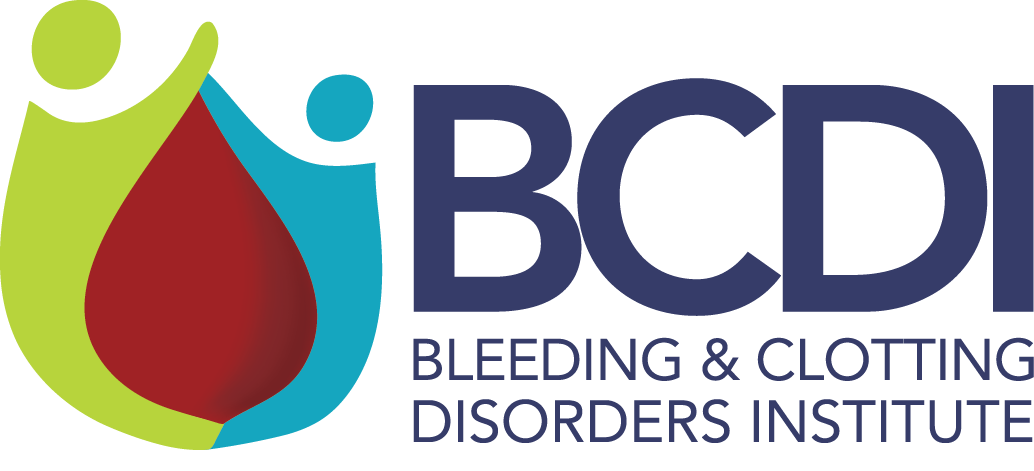
March is Bleeding Disorders Awareness Month and BCDI is dedicated to being a leader in spreading awareness about bleeding disorders throughout the community. Bleeding disorders affect thousands of Americans and oftentimes, become a life-long diagnosis requiring frequent doctor’s visits, expensive medications and mindfulness of potential symptoms and lifestyle choices.
Bleeding disorders are a group of conditions that share the inability to form a proper blood clot. They are characterized by extended bleeding after injury, surgery, trauma, or menstruation. Sometimes the bleeding is spontaneous, without a known or identifiable cause. Improper clotting can be caused by defects in blood components such as platelets or clotting proteins, also called clotting factors. The body produces 13 clotting factors; if any of them are defective or deficient, blood clotting is affected. A mild, moderate, or severe bleeding disorder can result.
The most common types of bleeding disorders that the BCDI team treats are Hemophilia A, Hemophilia B, von Willebrand Disease, Immune Thrombocytopenic Purpura, and Platelet Function Disorders. Some bleeding disorders can be inherited or acquired, while others can occur from such conditions as anemia, cirrhosis of the liver, HIV, leukemia, or vitamin K deficiency. Bleeding disorders can also result from certain medications that thin the blood, including aspirin, heparin, and warfarin.
While learning about bleeding disorders, it is imperative to know what the signs and symptoms of a potential diagnosis are, including:
- Bleeding into joints, muscles, and soft tissues.
- Excessive nosebleeds.
- Prolonged, heavy menstrual periods.
- Unexplained bruising.
- Extended bleeding after minor cuts, blood draws or vaccinations, minor surgery, or dental procedures.
Treatment for bleeding disorders varies depending on condition and severity. For some bleeding disorders, there is clotting factor concentrate that is infused as a preventive measure or on-demand at home to prevent or treat bleeds. For other bleeding disorders, there are topical products, nasal sprays and fresh frozen plasma, which is administered in a hospital setting.
While there are some commonplace treatments and remedies for individuals with bleeding disorders, each case should take the patient’s entire health record and journey into account. That’s why BCDI implements a comprehensive care approach that supports our patients and their families with thorough physical, mental, and psychological attention and care. At BCDI, patients themselves are an integral part of their support team. This starts with proper education, not only about their specific diagnosis, but also in recognizing symptoms of bleeds, preventing injuries, and general lifestyle choices like travel, physical activity, and family planning. Through community events and patient advocacy group meetings, BCDI patients can connect with others with a similar diagnosis. This type of relationship building helps families cope and learn about their loved one’s diagnosis. From education to supportive services, the staff of BCDI is with the patient every step of the way.
During March, BCDI invites you to join the conversation in raising awareness about bleeding disorders and advocate on behalf of bleeding disorders patients! BCDI will be shining the spotlight regarding bleeding disorders, providing education, and helping spread awareness about these conditions that is held dear to BCDI’s mission. If you would like to learn how you can get involved and take part in Bleeding Disorders Awareness Month, be sure to like and follow the BCDI Facebook page, found here, throughout March!

